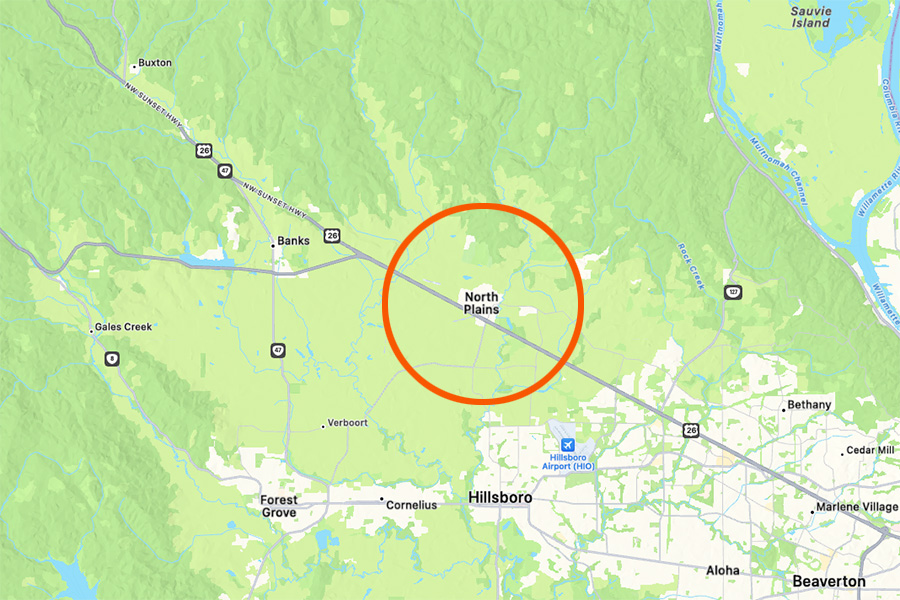Voters in the small Portland suburb might have thrown a wrench in the governor’s housing plans.
Voters in a small Portland suburb may have upended a key component of the governor’s affordable housing plan and set up a constitutional battle over the future of Oregon land-use policy.
A century ago, North Plains was a small agricultural community linked by rail to Portland 18 miles to the east. Today, it’s a fast-growing and affluent bedroom community of 3,400. The city has a small-town feel with rows of new subdivisions and upscale townhouses, The Oregonian reports. But it lacks many small-town amenities like a grocery store or coffee shops and residents drive elsewhere for the workday.
Communities at the edges of Portland’s urban growth boundary have long seen farmland replaced with monolithic commercial development like data centers and warehouses. In response, leaders in North Plains sought to control their own destiny by annexing 855 acres, which would have more than doubled the size of town. North Plains residents enjoy some of the lowest taxes in the state and officials had hoped to expand their tax base to help fund new commercial and industrial development as well as some new housing, according to The Oregonian.
The plan made leaders in Salem nervous — so much so that in the waning days of the 2024 short legislative session, lawmakers passed an emergency bill that effectively killed the North Plains ballot question. Lawmakers were fearful it might establish a precedent where public campaigns swiftly derail affordable housing and other land-use plans that took years to craft. Passed with broad bipartisan support, House Bill 4026 established that urban expansions aren’t subject to voter approval.
But shortly after Gov. Tina Kotek signed HB 4026, expansion opponents in North Plains sued to block it, claiming the law unconstitutionally denied voters’ rights. A Washington County judge issued a temporary order that kept the question on the primary ballot.
When the primary was held May 21, North Plains voters overwhelmingly opposed the expansion, 72% to 28%. (Turnout among eligible voters — 56% — was higher in North Plains than the overall statewide turnout of 35%.)
Now, further legal wrangling seems certain as leaders resolve what role voters should play in planning their communities. Voting rights groups and land-use proponents assert the state constitution guarantees voters should have a say. But with chronic and deep-seeded housing shortage acutely afflicting the state and Portland area, some leaders and groups like the League of Oregon Cities are worried public votes will further muddy the state’s complex urban expansion process.
Click here to subscribe to Oregon Business.




